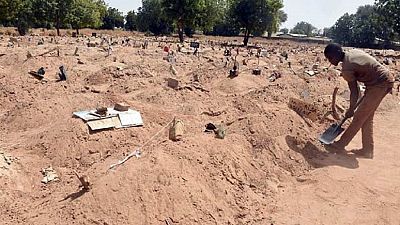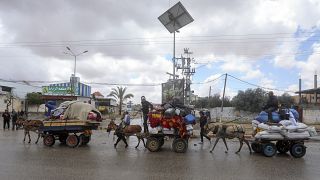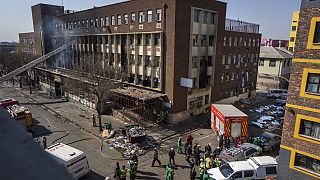Nigeria
The grave-diggers of Maiduguri, Nigeria’s Borno state capital can tell you that dead weren’t safe from Boko Haram when the Islamist insurgency erupted in northeast Nigeria seven years ago.
The dead may no longer be able to tell tales but the grave-diggers of the Gwange cemetery certainly can. They talk of a place where piles of bodies were routinely dumped from trucks and some were even brought to be killed.
However the grave-diggers’ workload has since decreased as attacks become more sporadic and a sustained counter-insurgency has brought relative calm to the much-targeted city.
Nigerian police and military launched a crackdown in Maiduguri after a series of Boko Haram attacks at the end of July 2009. Some 800 Islamists, including the group’s then leader Muhammad Yusuf, were killed in just a few days in what is considered the start of Boko Haram’s insurgency.
“In the past we would get up to 20 to 30 bodies every day. Now we get five to 10. Most of these are deaths from natural causes,” says Bulama Ali who heads a team of grave-diggers.
However Boko Haram’s dead were not extended the courtesy of getting a decent burial. Instead, they were simply dumped and covered, leaving only small ridges in the ground to indicate what lies beneath.
Civilian suspects who died in custody, including at Maiduguri’s notorious Giwa Barracks that has seen human rights groups accuse the military of flagrant abuse, also have their final resting place in Gwange.
The grave-diggers themselves recall being rounded up in the days when any young man was a Boko Haram suspect, particularly in Gwange, once a hotbed for militant sympathisers.
Now, as Maiduguri tries to overcome its turbulent recent past, the young men who have witnessed more than most the ultimate effects of the insurgency want some recognition.
“We work from morning to 6:00 pm before we shut the gates,” said 25-year-old Ibrahim Abubakar.
“We work here and nobody cares to come around and even give us anything to buy food. This really hurts us.
“This is the largest cemetery in the city. The (state) government ought to give us some attention.”













02:20
Nollywood Week Film Festival gets underway in Paris
01:05
Nigeria: Govt workers salaries increased by up to 35 percent
Go to video
Nigerians pick sides as Wizkid and Davido clash online
02:14
Malaria: The plight of residents of low-income neighbourhoods
01:50
Guinness World Record: Chess champion returns home to Lagos
Go to video
Chinese supermarket in Abuja shut for allegedly barring Nigerians